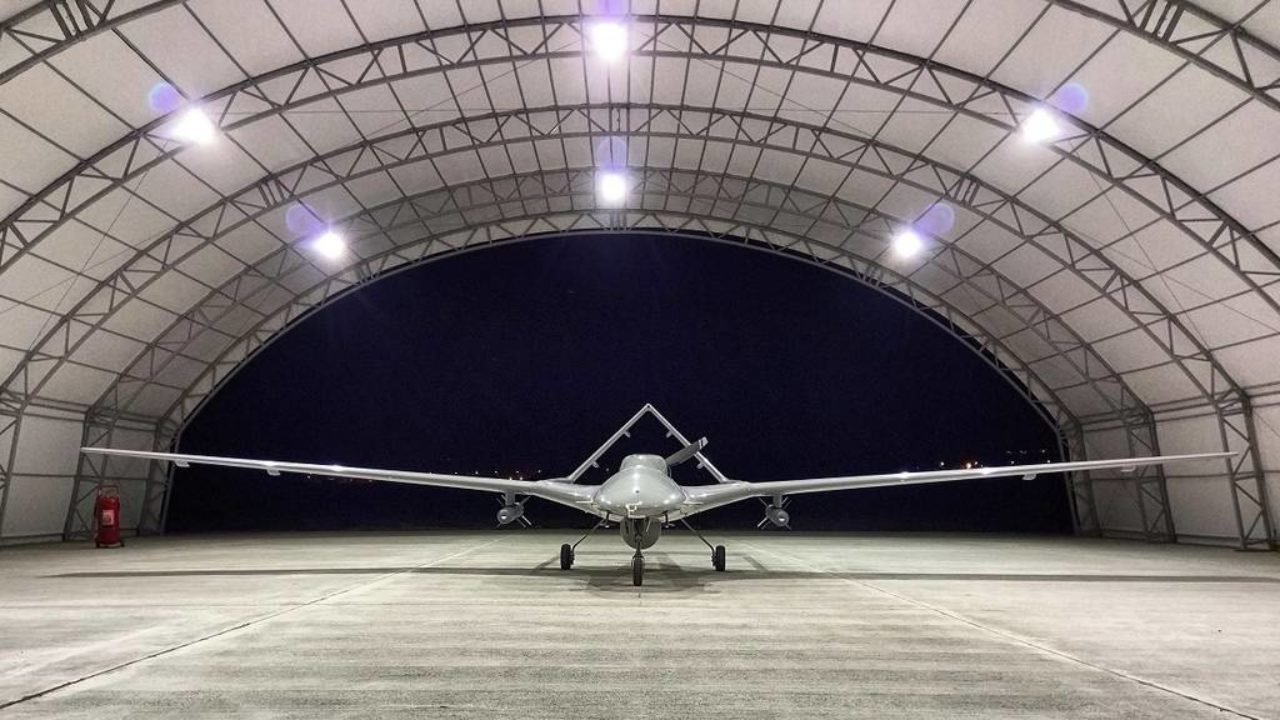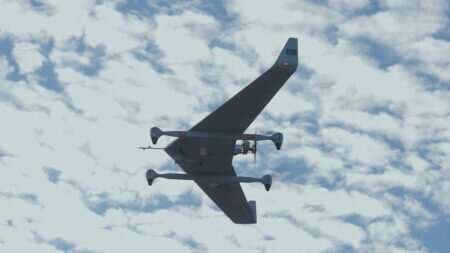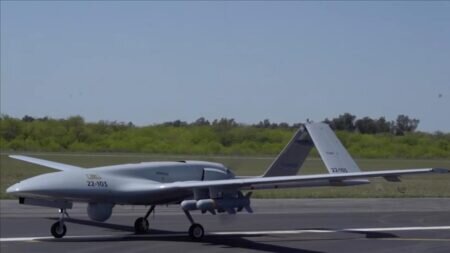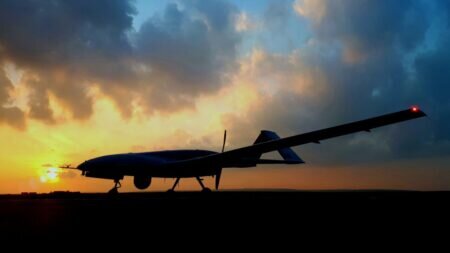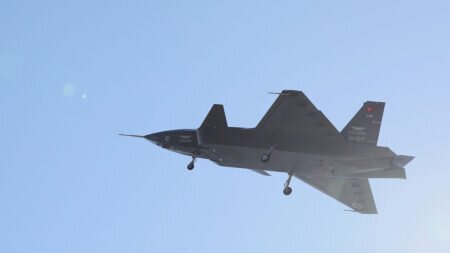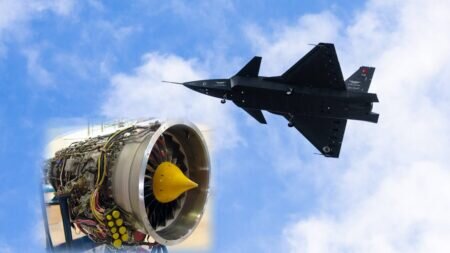The Rosoboronexport official stated that Russia will start to promote the Orion-E MALE UAVs for export with a phrase as “Bayraktar’s Killer” on Russian military media outlets. What happened to the Turco-Russian strategic partnership as now the Russian officials are mentioning annihilating the Turkish-made UAVs which are becoming operational in the Eastern Europe? A lesson from history may easily shed light on this rivalry. From the 17th century and afterwards the Ottoman Empire and the Tsardom of Russia was in a rivalry over the Eastern Europe and the Balkans. It seems like this rivalry is re-vitalizing through the military innovation market mostly revolving around the unmanned aerial platforms.
Eastern European countries such as Hungary, Latvia, Albania, Serbia and Poland have all submitted their interest in the Bayraktar TB2 UAVs which has been on the front burner since the comprehensive operations in Syria. The Turkish superiority in the air provided with these UAVs become the hotbed of discussion as the Russian air-defense systems such as Pantsir-S1 and S-200s were damaged or even destroyed in several occasions. As the military records of destroyed air defense systems became viral, the Bayraktar TB2 UAVs raised eyebrows in almost all regions of the world. This process was crowned buy the several procurement procedures and MoUs between Baykar Inc. (producer of the Bayraktar TB2 UAVs) and countries like Qatar, Azerbaijan, Poland and lastly Albania.
Baykar Inc.’s exports were globally discussed when a Russian rival, Ukraine, decided to import this technology in 2019. As 12 Bayraktar UAVs and 3 ground control stations were procured for $69 million with a 5 unit addition in 2020. There were statements about a joint venture between Ukraine and Turkey (including Ukrspetsexport and Baykar) to produce aerial technology and precision systems. It was stated that Turkey allowed Ukraine to sell the domestically produced drones to export except for Turkey’s clients. This is unusual for the defense industry as the innovators usually try to sell a product for a long time first and then let only the ‘good partners’ to sell these systems. That might be one of the reasons why so many countries have publicly announced their interest in these systems. The ‘Turkish’ way on military technology transfer has been a different case since the 2000s. Turkey was struggling to modernize its F-16s and produce military systems with little help from USA and its regional partner, Israel. However, the projects that the world follows currently are all embedded in the historical struggles in these years, as well. Most of the military enterprises flourished during the 1990s and the production capacity was developed with several industrial zones reserved for the defense sector. In brief, several projects that have its history in the 1990s such as ATAK (tactical reconnaissance and attack helicopter), ALTAY (main battle tank) and FIRTINA (self-propelled artillery) might have this kind of export successes in the coming future.
The Eastern European interest in the Baykar’s UAVs has become more salient after the Nagorno-Karabagh conflict in 2020. The Turkish hand offered through the Bayraktar TB2 UAVs offered to Azerbaijan dramatically changed the course of an interstate conflict. This has almost created a shock even for the military experts as most of the scholars claimed that UAVs would not be as efficient against the state armies as they are against terrorist or militia groups. The Armenian army’s outcry against the Azerbaijani Bayraktar TB2’s almost introduced the potential of these military systems to the outer world which accelerated the military procurements. Several countries like Serbia and Kazakhstan submitted their imminent interest in importing these systems to make their territories more secure. However, the explosive development in the exports occurred in 2021 as most of the states overcome the political burdens and actualized their demands through diplomatic channels. The Eastern European states such as Poland, Bulgaria, Hungary, Latvia, Albania, and Republic of Serbia have publicly announced their interest in procuring Bayraktar TB2s. Poland and Turkey finalized a procurement deal in the middle of these statements for 24 Bayraktar TB2 UAVs with deliveries to begin next year. This 24 unit procurement deal included the training and anti-tank missiles which means the price should easily surge over the $100 million mark with the at least 3-5 ground control stations necessary to operate these systems. While the defense sector was analyzing and trying to grasp a EU and NATO members’ acquisition of this Turkish military system Albania also confirmed a procurement worth over $9 million which might indicate that at least 2 Bayraktar TB2 will be exported. The Latvian Defense Minister visited the Baykar Inc. headquarters in the beginning of June which created a perception that it might the next country to import these UAVs.
However, the interest in Turkish military systems are neither limited to Bayraktar TB2s nor Eastern Europe. Several African and Middle Eastern countries such as Saudi Arabia, Morocco, Somalia and Egypt submitted interest in potential future buys regarding these military UAVs. These details shed light on the current state of Turkish military influence in terms of technology and might hint at the possible expansion directions which might threaten some states such as Greece and Russia. The Turkish expansion of military technology into Africa cause great problems for France as Khalifa Hafter’s forces were defeated with substantial impact of these UAVs. This process might hint at the same potential impact in other African countries with sovereignty issues such as Morocco (Western Sahara), Somalia, Ethiopia and Sudan. Increasing Turkish influence in these territories might hinder the European and US gains in this region while encouraging these states to resent to the status quo. The battle-proven military systems might create the exact opportunity for these weak states to control their territory and fight against terrorist activities in their soil. The Turkish military experience in the Turkish, Iraqi, Afghani and Syrian territories might also act as leverage for the increasing Turkish influence and trust towards this state. It is well-known that Turkey has expanded its military technology market to Africa through procurement deals with Morocco, Tunisia, Somalia, Sudan and Rwanda. The European leaders and Russia might be concerned from these cases that it might reflect itself to the Eastern Europe, as well.
Another hypothetical concern is that the Russian-European border and the surrounding of Greek territory might become a controlled by the Turkish UAVs in the coming decade. If all of the potential buyers in the Eastern Europe such as Bulgaria, Latvia, Hungary and Republic of Serbia finalize their procurement of Bayraktar TB2 UAVs than 3 out of 4 continental neighbours of Greece and 2 out of 4 European neighbours of Russia will protect their borders with these platforms. This image may cause problems in the military balance of the Eastern Europe as it might change the current dependency of the countries to the Western states to defend their territories. Moreover, the Syrian and Azerbaijani cases in 2020 proved that the Bayraktar TB2 is not merely to monitor and defend territories but they are very effective in attacking missions, as well. This aspect propounds the fact that the Turkish military UAVs are going to have an impact on the offense-defense balances in these regions. These changes to the status quo might embark several political turbulences in the EU and NATO led by a French dismissal of the Turkish penetration in terms of military technology. All in all, the military procurement deals with Poland and Albania created another dimension in the European security discussions with much potential to have a lasting impact in the next decade.


